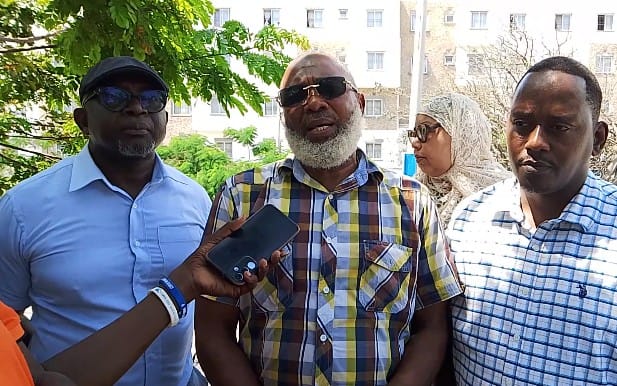Margaret Nduta spared death penalty, to serve life sentence in Vietnam for drug trafficking

The ruling, delivered on Thursday, follows legal reforms in Vietnam that removed automatic death penalties for certain crimes, including drug trafficking.
Kenyan national, Margaret Nduta, has been spared the death penalty after Vietnam’s Supreme Court commuted her sentence to life imprisonment.
The ruling, delivered on Thursday, follows legal reforms in Vietnam that removed automatic death penalties for certain crimes, including drug trafficking.
More To Read
- KDF denies allegations of methamphetamine theft in massive 1,024kg seizure off Kenyan coast
- Record cocaine seizure in Haitian waters underlines country’s ‘pivotal’ trafficking role
- Women MPs call for abolition of death penalty for female offenders, citing gender inequities
- Kenya Airways staff jailed for 25 years for trafficking heroin
- Busia destroys Sh21.9 million worth of heroin, bhang in anti-drug operation
- Court orders detention of six Iranians in Sh8.2 billion narcotics case
Nduta was convicted after being found in possession of 2 kilograms of narcotics, a charge that previously carried a mandatory death sentence under Vietnam’s criminal code.
The court’s decision now allows her to apply for clemency or a reduction of sentence from the President of Vietnam, who has the constitutional power to grant leniency.
Until July 2, Vietnamese law permitted the death penalty for 22 offences, including treason, corruption, murder, and trafficking more than 100 grams of illegal drugs.
Following recent legal amendments, those found guilty of drug offences like Nduta can now avoid execution, though they may still face up to 40 years in prison.
The case had drawn public attention in Kenya due to the high stakes involved and the tight timeframe the country had to engage diplomatically before the court reached its decision.
Amnesty International-Kenya welcomed the ruling, while also urging further reforms.
“While a fair trial in a court of law is best placed to pronounce guilt or innocence, it is clear that the death penalty remains a cruel and inhumane punishment for all crimes,” said Amnesty’s Executive Director Irungu Houghton.
“Margaret Nduta’s cruel death will not stop the trade. By all accounts, she was not the mastermind but a mule in a trade that will immediately find another mule to transport the drugs of addiction and death,” he added.
Dozens of Kenyan nationals remain behind bars in various Asian countries, caught up in serious offences such as drug trafficking and sexual crimes.
Vietnam’s decision may set a new precedent, but for many, long sentences and harsh conditions remain the reality
Top Stories Today













































